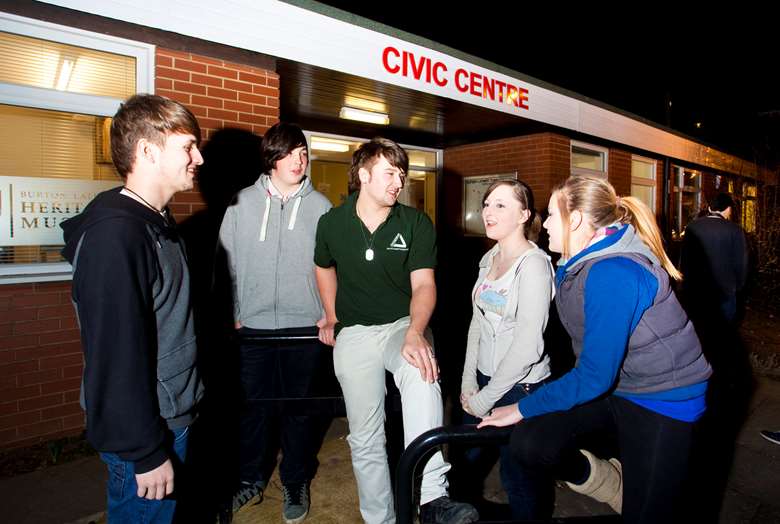Letters to the Editor: Room for improvement in youth work curriculum
Tuesday, October 27, 2020

Having attended all three ministerial conferences between 1989 and 1992, which forged the last youth work curriculum for England (and contributed to the one in Wales), I looked forward with anticipation when I saw that the National Youth Agency (NYA) had, after 30 years, produced a new version (‘NYA launches new national youth work curriculum’, cypnow.co.uk, 30 September). Regrettably, it is a bit of a curate’s egg – great in parts, but sadly deficient in others.
It is emphatic that youth work is “a form of education” which, as the seven-volume History of Youth Work in Europe goes to some lengths to explain, is not how youth work has often been perceived or executed. The document invokes stale and blurred definitions of informal and non-formal education – and, worse, it shifts to the term “learning”, though that is what it should have used in the first place.
The themes identified as being at the heart of youth work practice are excellent: identity and belonging; health and wellbeing; healthy relationships; economic and financial wellbeing; leadership, civic engagement and participation; arts, culture and heritage; creativity and fun; global citizenship; the environment and sustainable development; and skills development. The emphasis on working with “related professions” is also to be commended.
The document is also helpful in identifying the range of quality standards that apply to youth work, and the policy obligations that could and should incorporate youth work more explicitly, that flow from UK legislation and guidance, and international standards.
However, though strong reference is made to the United Nations Declaration on Human Rights and the UN Convention on the Rights of the Child, no mention is made of European frameworks. The Council of Europe’s 2017 Recommendation on Youth Work is conspicuous only by its absence, and, although some reference is made, in “further information” at the end, to the work of the European Commission, nothing is said of the EU 2010 Resolution on Youth Work. Perhaps, given Brexit, that was an expedient decision.
All in all, I hope that this youth work curriculum document really is “Version 1”, as it says on the cover, and that Version 2 can be tidier, tighter and more precise. A refreshed take on the youth work curriculum is timely, and the content of this document has potential, but – if it is to set out a plausible and powerful curriculum framework for English youth work in the future – it can and should do better.
Howard Williamson, Professor of European youth policy, University of South Wales
Charities should care where money comes from
The machine plant manufacturer JCB has come onto the radar of the National Contact Point following a compliant by Lawyers for Palestinian Human Rights that JCB had been ignoring concerns that its machines are being used in the Occupied Territories to demolish Palestinian homes.
While the press had focused on the fact that JCB were big Conservative Party donors, it also seems equally unethical that JCB should receive any accolade for its recent £5m donation to the reputable children’s charity the NSPCC. In turn it is ironic that the charity’s claim that “every childhood is worth fighting for” rings a little hollow by accepting such a donation.
Having worked with and made referrals to the NSPCC’s excellent services for many years I find its decision to accept a donation from JCB more than regrettable. It should care as to how that money is obtained.
I would like to add my voice to the Social Work Action Network and the UK Palestine Mental Health Network who are asking the NSPCC to reconsider its position and to live up to its proclaimed ideals of championing children’s rights where ever they are in the world and not just here in the UK.
Simon Cardy, registered social worker, by email
Support service for children of prisoners
Nationally, an estimated 312,000 children are affected by parental imprisonment. The health and educational impact on these children is largely documented, yet they remain invisible.
YSS is launching a service in Worcestershire to support every child and young adult affected by the imprisonment of a loved one.
The Families First service aims to bring together professionals and community organisations to design a response that will reduce the distress experienced by these children and their families. Over the long term this adverse childhood experience affects children’s life chances in education, mental health and identity.
These children are victims of circumstances outside of their control, yet they carry the shame associated with the imprisoned parent’s offence.
During lockdown, prison visits were halted and not every family can connect virtually; this has exacerbated the issue with many children unable to connect with their missing parent.
We would encourage friends and family to contact us and talk to our workers if they know a child in need of help; we do not judge, we want to deploy our knowledge to help them through difficult times.
The new service will launch in December, with support from Worcestershire County Council and two charitable trusts.
Catherine Kevis, chief executive, YSS




